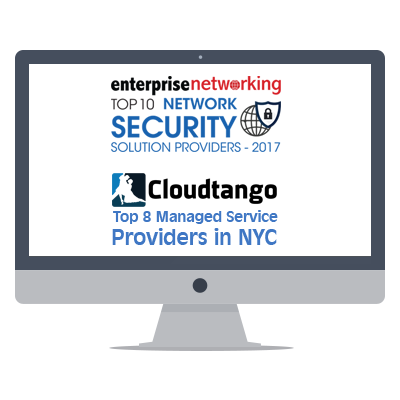
Ransomware attacks have become a major threat to businesses of all sizes — from SMBs to large global enterprises — and the legal fallout has become more severe. New data reveals a rise in lawsuits filed against organizations following ransomware attacks, with financial implications for both the targeted companies and their MSPs.
According to a study by Comparitech researchers, nearly 1 in 5 ransomware attacks resulted in a lawsuit in 2023. This marks an increase from the 12% average observed over the past five years.
While the statistics only represent a fraction of the total number of attacks, they reveal a worrying trend — a large portion of victims face legal repercussions beyond the initial extortion attempt.
According to the report, 59% of the lawsuits filed were successful. This means that nearly six out of 10 businesses that suffered a ransomware attack faced additional legal consequences.
The financial burden of these lawsuits is severe. Settlements averaged $2.2 million, with the highest individual payout reaching a staggering $5 million. This indicates that even a single successful lawsuit can cripple a company's finances.
Additionally, organizations have been hit with nearly $10 million in penalties for security failures before, during or after an attack, which only further shows the legal consequences of inadequate cybersecurity measures, even if a company doesn't pay the ransom.
With that said, businesses overall faced a heavy financial burden. They faced the highest penalties, $8.7 million, and settlement amounts close to a total of $168 million. Businesses, regardless of industry, are particularly vulnerable to the financial repercussions of ransomware attacks and subsequent lawsuits.
Ransomware attacks are clearly no longer just a financial extortion tactic; they can trigger a legal nightmare with potentially devastating financial consequences.
The high success rate of lawsuits indicates a growing trend of legal action against companies that suffer data breaches due to ransomware. This trend is likely to continue as the legal system fights against a threat landscape that seems to change daily.
So, what are the implications for MSPs?
Obviously, the rise in ransomware lawsuits presents a challenge for MSPs entrusted with the critical task of safeguarding their clients' data. These lawsuits not only expose businesses to potential financial ruin but also cast a shadow on the MSP industry because they raise questions about the level of protection offered.
MSPs operate in a landscape where a successful ransomware attack on their client can lead to legal action. This means they must be aware of the growing legal risks associated with these attacks and their potential consequences.
Firstly, MSPs could be held liable for failing to implement adequate security measures. This liability can arise from contractual obligations outlined in service agreements or negligence claims if the MSP fails to meet the expected standard of care.
Secondly, even if the MSP isn't directly named in the lawsuit, they may still face reputational damage and potential loss of clients if their security practices are deemed inadequate in the aftermath of an attack.
That is why it is important for MSPs to ensure their clients understand the potential financial and reputational consequences of a successful ransomware attack. This includes transparent communication about the limitations of their services and the shared responsibility in maintaining a robust cybersecurity posture.
For MSPs to avoid any of this, they must prioritize implementing security measures that cover everything for their clients. Forget about installing antivirus software, an approach to mitigate potential vulnerabilities is needed:
- Vulnerability management: Regularly scanning systems for vulnerabilities and promptly patching them is crucial to prevent attackers from exploiting known weaknesses.
- Data encryption: Implementing data encryption at rest and in transit significantly reduces the impact of a breach.
- Employee security awareness training: Educating employees about phishing scams, password hygiene and other cybersecurity best practices is vital in preventing human error, a common entry point for ransomware attacks. This means doing things such as regularly communicating the latest cybersecurity threats and trends to clients to keep them informed and engaged in the security process.
- MFA: Implementing MFA adds an extra layer of security.
By proactively implementing these measures, MSPs reduce the risk of successful ransomware attacks and the potential legal repercussions for them and their clients.
But say something were to happen — well, MSPs would need to make sure they have an incident response plan in place to protect themselves and their clients. Here’s an example of a IR plan:
- Quickly isolate the infected systems to prevent further spread of the ransomware.
- Restore data from secure backups to minimize downtime and data loss.
- Communicate the incident to clients, law enforcement and other relevant stakeholders.
- Identify the source of the attack and take steps to prevent future incidents.
By having a pre-defined plan, MSPs can act swiftly and decisively in the aftermath of an attack to reduce the potential for further damage and demonstrate their commitment to client security.
With the continued rise of ransomware attacks that we see in various reports, the trend of lawsuits is likely to escalate. However, the data from Comparitech suggests a potential shift toward more out-of-court settlements and voluntary dismissals, driven by the desire for quicker resolutions and reduced costs.
For MSPs to stay ahead, they must (and we can’t stress this enough) proactively advise their clients on the heightened risks and implement security measures to minimize the potential for data breaches and the subsequent legal repercussions.
Edited by
Alex Passett



